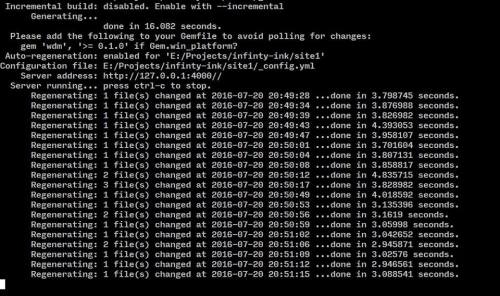Making a Publication on a USB Drive
by Dylan Kinnett
Contributor to the awesome website, Infinity’s Kitchen
*
*
Publishing has become a digital process. Books, newspapers, magazines, and posters are all, for the most part, created using software before they’re printed, by machines, onto paper. The older traditions of letterpress, screen printing, and binding by hand have taken a back seat to these newer technologies throughout the publishing industry, but they’re not dead.
Ink Press Productions, an operation based in Baltimore, Maryland, is a publisher that focuses on a DIY aesthetic, and relies heavily on the tried-and-true manual, human processes of book-making.
In that same city of Baltimore, Maryland, another operation called Infinity’s Kitchen is focused on the question, “what is literature in a post-digital setting?” It’s also a website that features video and other multimedia. This project seeks to do things with writing that take advantage of what print can do, but it also publishes work that cannot possibly be printed.
These two operations are collaborating to produce An Internet, which is a digital publication that does not rely on the World Wide Web to be distributed. Instead, it is a physical object, a USB drive. Dylan Kinnett, of Infinity’s Kitchen shares some coder’s notes, about what it’s like to build such a thing…

In the early days of the project, before the interface for An Internet had any code to support it, we had several conversations, largely centered around THE Internet. What is it? What is it meant to be? What is it becoming? How do we feel about it? What would happen if we were to bring a DIY aesthetic to the whole thing? I found myself thinking often about the very early days of the web, before Google became the apparently omniscient automated oracle that it is now, when the web really was a more handmade thing. There were hand-picked web directories, and web rings, and links pages, that provided personally chosen connections between one thing and the next. These connections were made as often by individuals, sometimes hobbyists, as they were by other individuals who worked for small (growing) companies. Now, the whole thing is so vast that these connections seem to be impossible to curate by hand, let alone to comprehend, and so we trust algorithms to compute relevance for us. A hand-made internet, if there can be such a thing, should resemble those early days, more than the algorithms.
Read the full Notes from a Coder article right here. *
By Dylan Kinnett
courtesy of InkPress Productions





